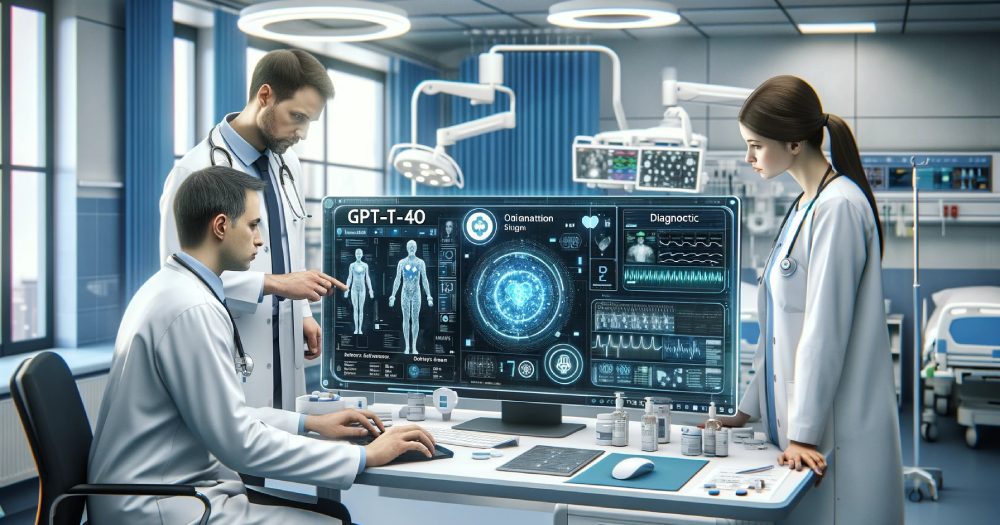5 ways GPT-4o will help the healthcare industry

You've probably heard about OpenAI's new GPT-4o model and may be wondering how it can help the healthcare industry. We decided to ask ChatGPT about it and see what it has to say. We've also asked it to generate the image for this article, which you can see here.
Our prompt was:
Act as a journalist and explain in an easy-to-understand language how GPT-4o will help the healthcare industry. Specifically, emphasize how it is better than OpenAI's previous models and how it will help healthcare practitioners and patients. The article's title should be "5 ways how GPT-4o will help the healthcare industry" so make 5 sections with 5 subtitles.
And here's the response ChatGPT returned:
1. Enhanced Diagnostic Accuracy
GPT-4o represents a significant leap forward in artificial intelligence for healthcare. One of its most promising applications is in diagnostics. This new model can analyze vast amounts of medical data with remarkable precision, helping doctors identify diseases more accurately than ever before. Unlike previous models, GPT-4o can interpret complex patterns in medical imaging, lab results, and patient histories — reducing the likelihood of misdiagnoses and enabling more personalized treatment plans.
2. Streamlined Administrative Tasks
Healthcare practitioners often find themselves bogged down by administrative work. GPT-4o can automate many of these tasks, from scheduling appointments to managing patient records. Its advanced natural language processing capabilities allow it to understand and process spoken and written requests with a high degree of accuracy. This automation frees up valuable time for healthcare providers, allowing them to focus more on patient care and less on paperwork.
3. Improved Patient Communication
Effective communication between healthcare providers and patients is crucial. GPT-4o can act as a highly capable intermediary, translating medical jargon into language that patients can easily understand. It can also provide real-time responses to patient inquiries, offering medical advice, appointment reminders, and follow-up care instructions. This improvement in communication helps patients feel more informed and engaged in their healthcare journey.
4. Personalized Treatment Recommendations
GPT-4o's ability to analyze large datasets enables it to offer highly personalized treatment recommendations. By considering a patient's medical history, genetic information, and lifestyle factors - the model can suggest tailored treatment plans that are more likely to be effective. This level of personalization was not as achievable with earlier AI models, making GPT-4o a game-changer in personalized medicine.
5. Support for Medical Research
The healthcare industry thrives on continuous research and innovation. GPT-4o can assist researchers by sifting through vast amounts of scientific literature to identify trends, correlations, and new insights. It can also generate hypotheses and suggest experimental designs, accelerating the pace of medical discoveries. This support for research helps bring new treatments and technologies to the forefront more quickly, ultimately benefiting patients and healthcare providers alike.
...
In summary, GPT-4o offers enhanced diagnostic accuracy, streamlined administrative processes, improved patient communication, personalized treatment recommendations, and robust support for medical research. These advancements make it a powerful tool in transforming the healthcare industry for the better.
💡Did you know?
You can take your DHArab experience to the next level with our Premium Membership.👉 Click here to learn more
🛠️Featured tool
 Easy-Peasy
Easy-Peasy
An all-in-one AI tool offering the ability to build no-code AI Bots, create articles & social media posts, convert text into natural speech in 40+ languages, create and edit images, generate videos, and more.
👉 Click here to learn more


